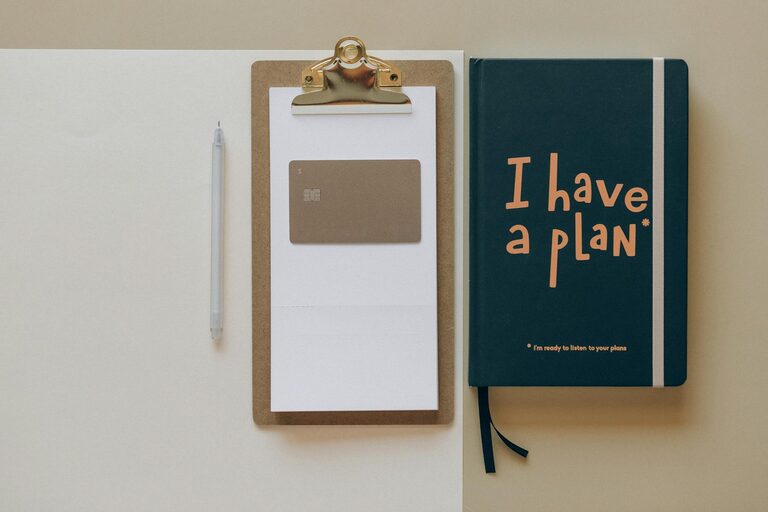
Managing your finances doesn’t have to be complicated or overwhelming. By adopting simple budget habits, you can take control of your money, reduce financial stress, and build a more secure future. Whether you’re new to budgeting or looking for easy ways to improve your current routine, these practical tips will help you make smarter money decisions every day.
Why Simple Budget Habits Matter
Budgeting often gets a reputation for being strict or restrictive. However, simple budget habits aren’t about cutting out all the fun—they’re about understanding your money, setting priorities, and making sure your spending aligns with your goals. Consistent habits make managing money easier and help you avoid unexpected expenses or debt.
1. Track Your Spending
Before you can create a budget, you need to know where your money goes. Tracking your spending gives you a clear picture of your habits and highlights areas where you can save.
– Use a budgeting app or spreadsheet
– Keep receipts and note purchases daily
– Review spending weekly to spot trends
Even just a week of careful tracking can reveal surprising insights into your habits.
2. Set Realistic Spending Limits
Once you understand your spending patterns, set limits that are both honest and achievable. This helps prevent overspending without feeling deprived.
– Break expenses into categories: essentials, savings, fun, etc.
– Allocate money for each category according to your income and priorities
– Adjust limits monthly as needed
Having set boundaries ensures your money lasts throughout the month and aids in reaching financial goals.
3. Automate Savings
One of the most effective budget habits is automating your savings. This reduces the temptation to spend what you intended to save.
– Set up automatic transfers to a savings account right after payday
– Start small if needed—consistency matters more than amount
– Use separate accounts for different goals (emergency fund, vacation, etc.)
Automation makes saving effortless and builds good financial discipline.
4. Plan Meals and Grocery Shopping
Food expenses can add up quickly without careful planning. Creating simple meal plans can help you avoid impulse buys and reduce food waste.
– Make a weekly meal plan and grocery list
– Stick to your list while shopping
– Buy in bulk or on sale for non-perishables
– Prepare meals at home more often
This habit not only saves money but also promotes healthier eating.
5. Limit Small Daily Purchases
Small purchases like coffee or snacks may seem insignificant but can accumulate significantly over time.
– Track small purchases to see their total cost
– Consider making coffee at home or bringing snacks from work
– Set a small daily “fun” spending budget if needed
Reducing these habits frees up cash for more important priorities.
6. Review Bills and Subscriptions Regularly
Many people overlook recurring expenses that quietly drain their finances.
– List all monthly bills and subscriptions
– Cancel services or memberships you no longer use or need
– Look for cheaper alternatives or discounts
This simple review can free up money that you didn’t realize was tied up.
7. Use Cash for Discretionary Spending
Using cash instead of cards can help control impulsive spending.
– Withdraw your discretionary budget in cash each week or month
– Leave cards at home when possible to avoid temptation
– When the cash runs out, stop spending until next period
Physically seeing money leave your hand can make spending feel more real.
8. Set Clear Financial Goals
Having concrete goals motivates better budget habits.
– Short-term goals: pay off a credit card, build a small emergency fund
– Long-term goals: save for a home, retirement, education
– Break goals into monthly or weekly steps to track progress
Goals give you purpose, making budgeting easier to stick with.
9. Keep It Simple and Flexible
Overcomplicating a budget may lead to frustration. Find a system that works for you and allow room for flexibility.
– Don’t stress about occasional splurges
– Adjust your plan as your life and priorities change
– Focus on consistency rather than perfection
Remember, budgeting is a tool to help you, not restrict you.
Conclusion
Building simple budget habits takes time, but with patience, they quickly become second nature. By tracking your spending, setting clear limits, automating savings, and planning your purchases, you empower yourself to make smarter money choices. Start with small changes today and enjoy the peace of mind that comes with financial control.
—
By incorporating these easy habits into your daily routine, managing money becomes less intimidating and more rewarding. You’ll gain confidence and have the freedom to focus on what truly matters in life. Happy budgeting!




